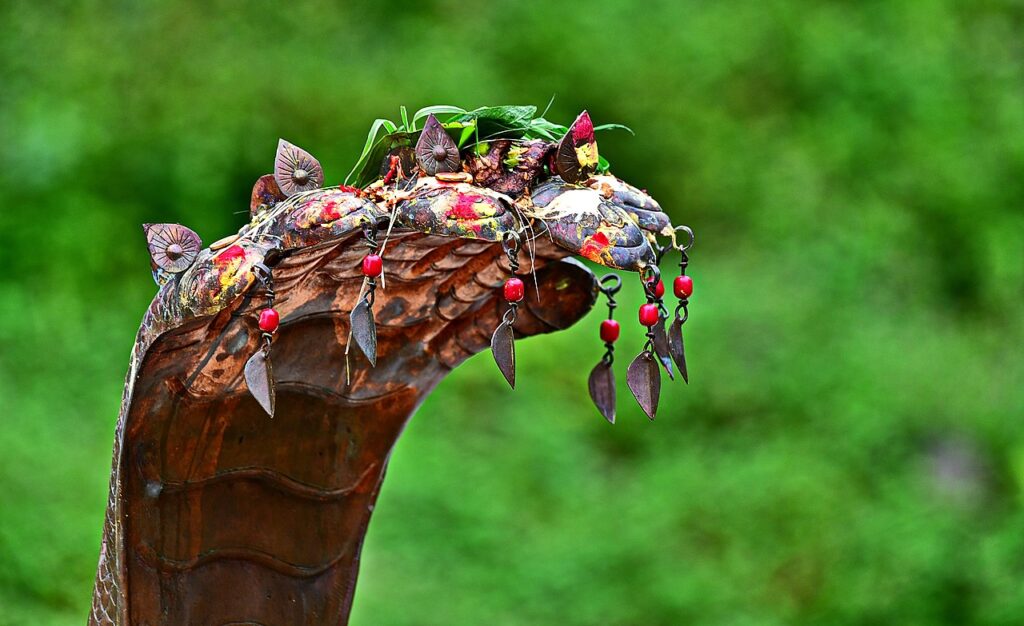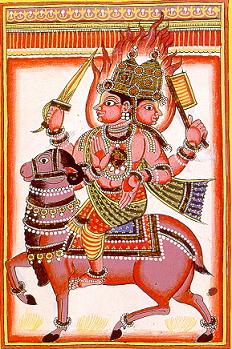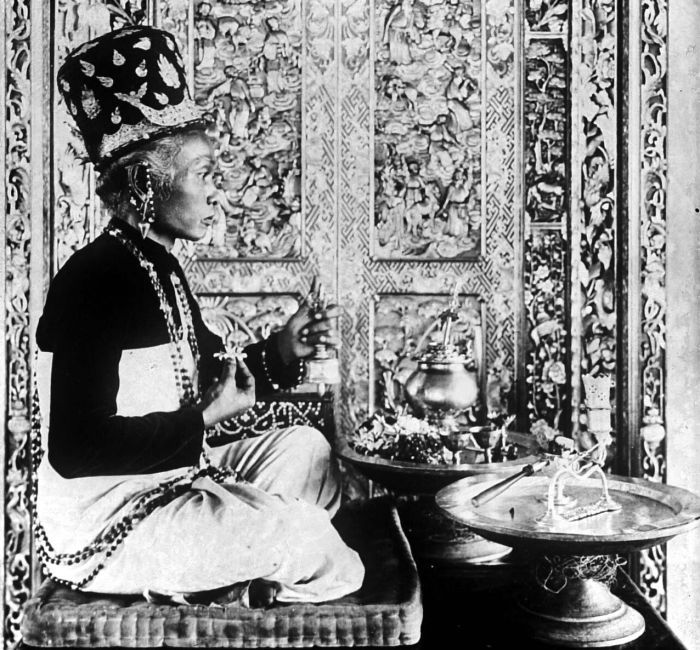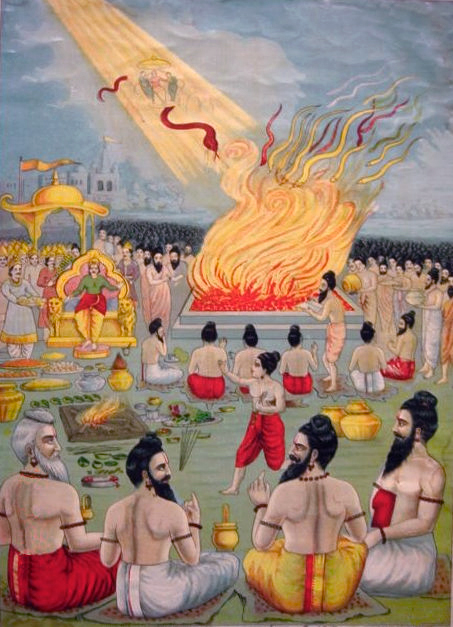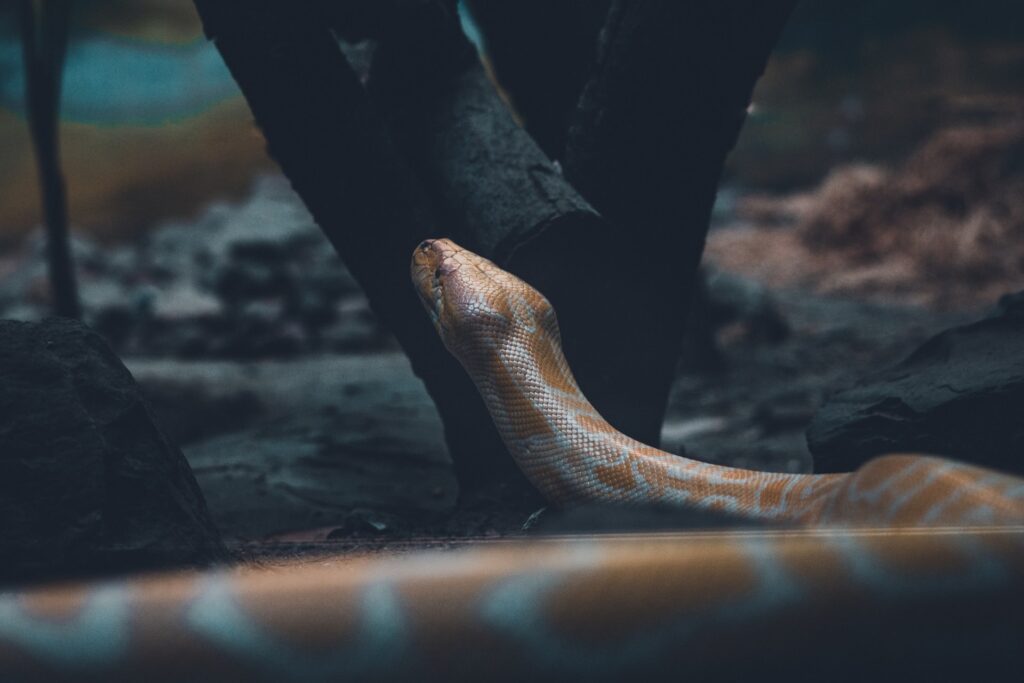
Table of Contents (The Complete Mahabharata in Simple English)
Previous Post: How Takshaka Was Protected From Falling Into the Fire
| Note: In the previous post, we learnt how Takshaka was saved from falling into the fire. In this post, the child-sage Astika returns home after successfully saving his maternal relatives and shares the good news with his mother and uncle. |
Astika returned home and touched his mother’s and uncle’s feet and joyfully told them everything that had happened at the yagna.
Vasuki and Jaratkaru were delighted that their relatives were safe. Pleased with Astika, they said, “O learned child, you have gratified us with your actions. Ask for a boon, O child. What can we do for you?”
Astika replied, “Let the snakes never harm those Brahmins and other people who cheerfully read the story of my actions with proper attention.”
Vasuki said, “O nephew, it will be exactly as you say. And let me also say that anyone who calls to mind Astika, Artiman, and Sunitha shall have no fear of snakes.”
Vasuki, however, did not stop with these two boons. He wanted to grant one more boon to bring glory to his nephew. He said, “If anyone accosted by a snake says the following words, the snake will not bite him, and, in case the snake does bite him then that snake’s hood will be split into a hundred pieces like the fruit of a Sinsa tree.”
The words designated by Vasuki were: “I call to mind the famous Astika, born of Jaratkaru, that Astika who saved the snakes from the snake sacrifice. Therefore O fortunate snakes, it is not correct for you to bite me. May you be blessed O snake of virulent poison. O snake, now leave remembering the words of Astika after the snake sacrifice of Janamejaya.”
Astika was also pleased to hear his uncle’s words.
The child brahmin had saved his maternal relatives from the sacrifice and also having sought safety for humans who remember him when accosted by a snake. Thus having completed his deeds with snakes and humans, Astika left his relatives and went away to live on his own. When his time on earth came to an end, he ascended to heaven leaving behind sons and grandsons.
| Note: According to The Mahabharata, reciting this story removes the fear of snakes. In the next post, we will find out the names of the snakes who perished in Janamejaya’s snake sacrifice. |
Table of Contents (The Complete Mahabharata in Simple English)
Next Post: Names of the Snakes Who Perished in the Sacrifice





